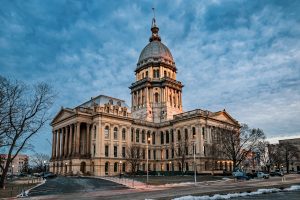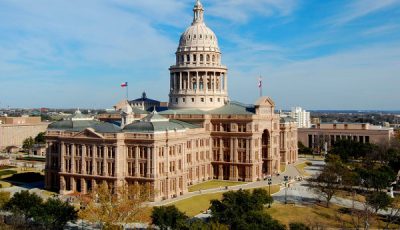Report: Illinois Senator Introduces Age-Verification Law
 SPRINGFIELD, Ill. – While the text of the bill has yet to be published to the legislature’s website, Illinois media outlets report that State Sen. Erica Harriss (R-Glen Carbon) and co-sponsor State Sen. Jason Plummer (R-Edwardsville) have introduced Senate Bill 2590 (SB 2590), also known as the “Adult Content Age Verification Act,” which resembles similar measures recently passed in Louisiana, Utah and several other states.
SPRINGFIELD, Ill. – While the text of the bill has yet to be published to the legislature’s website, Illinois media outlets report that State Sen. Erica Harriss (R-Glen Carbon) and co-sponsor State Sen. Jason Plummer (R-Edwardsville) have introduced Senate Bill 2590 (SB 2590), also known as the “Adult Content Age Verification Act,” which resembles similar measures recently passed in Louisiana, Utah and several other states.
According to a report from the Madison Record, SB 2590 “identifies the ‘reasonable age verification methods’ businesses must follow, including requiring a government-issued ID or commercial methods that rely on specific transactional data to verify the individual is 18 years or older.” If passed into law, the Act reportedly would give businesses “days to comply with the age verification methods or they will be subject to civil penalties assessed by the court.” Funds raised by the civil penalties would be “disbursed into the Cyber Exploitation of Children Fund, which helps state local law enforcement agencies develop an effective response to technology facilitated child sexual exploitation and internet crimes against children.”
SB 2590 also would empower the Illinois Attorney General to “investigate an alleged violation against a business who publishes or distributes pornographic material to minors who have not submitted reasonable age verification,” according to the Madison Record report.
“Our youth are incredibly vulnerable on the internet, and they have access to a wide variety of adult content, some of which can be harmful, hurtful, and inappropriate,” Harriss said. “I filed this legislation to help protect children from accessing explicit material intended for adult viewership by requiring more accountability from pornographic websites.”
It’s difficult to assess the breadth of the bill without seeing its text, but one major difference between this bill and the one at issue in the Free Speech Coalition’s recently dismissed lawsuit in Utah is clear, even without access to its text. Unlike the Utah statute, which created a private right to action, SB 2590 contemplates government action, including the investigatory power granted to the Illinois Attorney General. This makes the bill more vulnerable to legal challenge than the Utah statute, as potential plaintiffs like FSC would have an easier time establishing standing to sue.
As mentioned in a recent YNOT article about the legal guidance being provided to Congress on state-level age verification laws, it’s also possible that the courts will determine that age verification technology has advanced in ways that make it less burdensome and more effective than when the courts shot down previous legislative attempts to impose age verification measures, like the Child Online Protection Act.
YNOT will continue to track SB 2590 and report in greater depth on the bill once its full text is available.
Image of the Illinois State Capitol by Lensofeli, licensed under the Creative Commons Attribution-Share Alike 4.0 International license. It has been cropped and resized.













